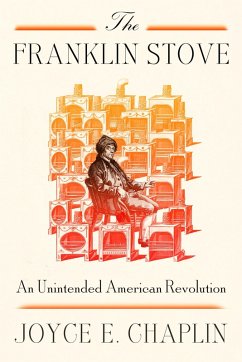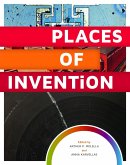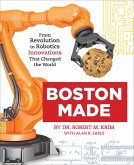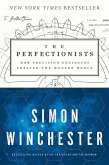"From Joyce Chaplin's engaging, wide-ranging pages a fresh Franklin emerges." -Stacy Schiff, Pulitzer Prize-winning author of The Revolutionary
"[Chaplin's] expansive claims for the Franklin stove's importance click into place." -Dan Piepenbring, Harper's
"A fascinating, innovative, inventive look at a fascinating, innovative man and his inventions." -Charles C. Mann, bestselling author of The Wizard and the Prophet and 1491
The surprising story of Benjamin Franklin's most famous invention-and a new take on the Founding Father we thought we knew.
The biggest revolution in Benjamin Franklin's lifetime was made to fit in a fireplace. Assembled from iron plates like a piece of flatpack furniture, the Franklin stove became one of the era's most iconic consumer products, spreading from Pennsylvania to England, Italy, and beyond. It was more than just a material object, however-it was also a hypothesis. Franklin was proposing that, armed with science, he could invent his way out of a climate crisis: a period of global cooling known as the Little Ice Age, when unusually bitter winters sometimes brought life to a standstill. He believed that his stove could provide snug indoor comfort despite another, related crisis: a shortage of wood caused by widespread deforestation. And he conceived of his invention as equal parts appliance and scientific instrument-a device that, by modifying how heat and air moved through indoor spaces, might reveal the workings of the atmosphere outside and explain why it seemed to be changing. With his stove, Franklin became America's first climate scientist.
Joyce E. Chaplin's The Franklin Stove is the story of this singular invention, and a revelatory new look at the Founding Father we thought we knew. We follow Franklin as he promotes his stove in Britain and France, while corresponding with the various experimenters who discovered the key gases in Earth's atmosphere, invented steam engines, and tried to clean up sooty urban air. During his travels back and forth across the Atlantic, we witness him taking measurements of the gulf stream and observing the cooling effect of volcanic ash from Iceland. And back in Philadelphia, we watch him hawk his invention while sparring with proponents of the popular theory that clearcutting forests would lead to warmer winters by reducing the amount of shade cover on the surface of the Earth. As the story of the Franklin stove shows, it's not so easy to engineer our way out of a climate crisis; with this book, Chaplin reveals how that challenge is as old as the United States itself.
"[Chaplin's] expansive claims for the Franklin stove's importance click into place." -Dan Piepenbring, Harper's
"A fascinating, innovative, inventive look at a fascinating, innovative man and his inventions." -Charles C. Mann, bestselling author of The Wizard and the Prophet and 1491
The surprising story of Benjamin Franklin's most famous invention-and a new take on the Founding Father we thought we knew.
The biggest revolution in Benjamin Franklin's lifetime was made to fit in a fireplace. Assembled from iron plates like a piece of flatpack furniture, the Franklin stove became one of the era's most iconic consumer products, spreading from Pennsylvania to England, Italy, and beyond. It was more than just a material object, however-it was also a hypothesis. Franklin was proposing that, armed with science, he could invent his way out of a climate crisis: a period of global cooling known as the Little Ice Age, when unusually bitter winters sometimes brought life to a standstill. He believed that his stove could provide snug indoor comfort despite another, related crisis: a shortage of wood caused by widespread deforestation. And he conceived of his invention as equal parts appliance and scientific instrument-a device that, by modifying how heat and air moved through indoor spaces, might reveal the workings of the atmosphere outside and explain why it seemed to be changing. With his stove, Franklin became America's first climate scientist.
Joyce E. Chaplin's The Franklin Stove is the story of this singular invention, and a revelatory new look at the Founding Father we thought we knew. We follow Franklin as he promotes his stove in Britain and France, while corresponding with the various experimenters who discovered the key gases in Earth's atmosphere, invented steam engines, and tried to clean up sooty urban air. During his travels back and forth across the Atlantic, we witness him taking measurements of the gulf stream and observing the cooling effect of volcanic ash from Iceland. And back in Philadelphia, we watch him hawk his invention while sparring with proponents of the popular theory that clearcutting forests would lead to warmer winters by reducing the amount of shade cover on the surface of the Earth. As the story of the Franklin stove shows, it's not so easy to engineer our way out of a climate crisis; with this book, Chaplin reveals how that challenge is as old as the United States itself.
Dieser Download kann aus rechtlichen Gründen nur mit Rechnungsadresse in D ausgeliefert werden.









